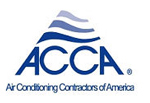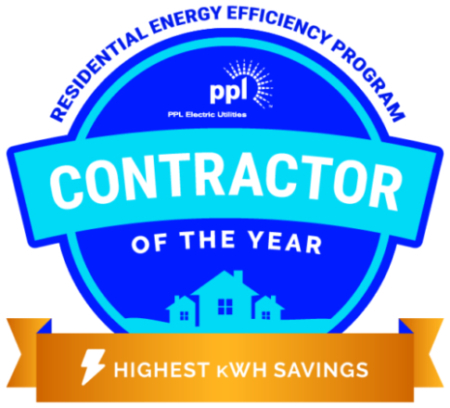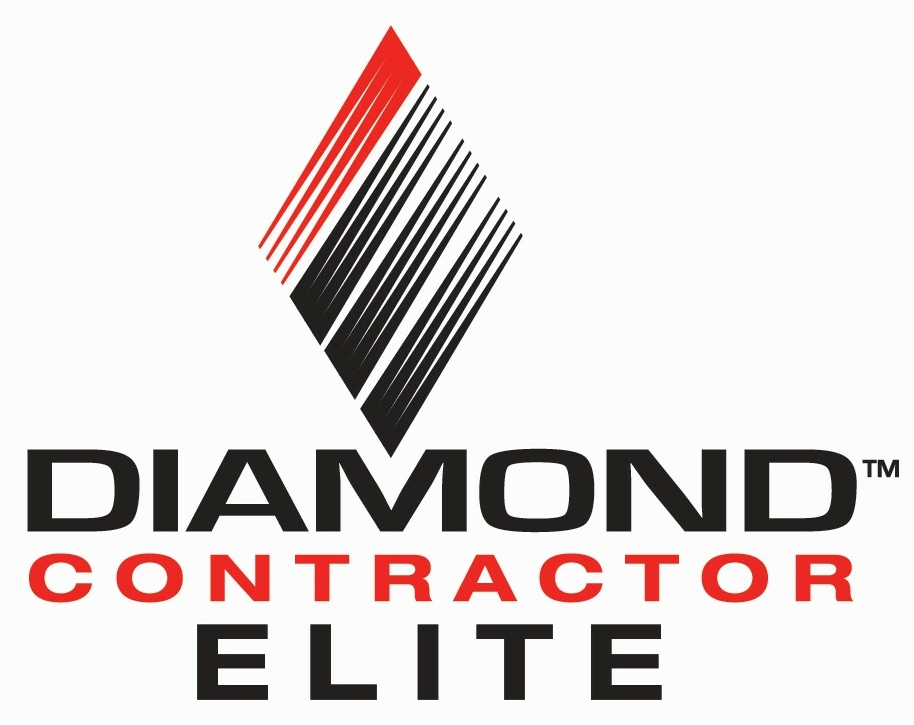Signs It’s Time to Upgrade your Home Heating Unit
You turn up the thermostat, and you expect your home heating system to kick out warm air, creating a toasty warm home for you and your family. What happens when the furnace, boiler, heat pumps or any heating system fails or can’t keep up? Besides feeling uncomfortably cold, furnace, boiler and heat pump problems can mean costly repairs.
Many problems with home heating systems are repairable, but others indicate the need for a new system. In some cases, it’s more cost-effective to buy a new system than it is to continue making expensive repairs to an old furnace. Keep reading to find out if your furnace problems mean it’s time to get a new system.
Your Heating System Is Old
You may only be as old as you feel, but your furnace, boiler, or heat pump definitely hits a point where it simply needs to be replaced because of its age. Home heating systems aren’t designed to work forever. The older they get, the more outdated they become in terms of home heating technology and energy efficiency
The typical lifespan of a heating system is 15 to 20 years. The specific timeframe depends on several factors, specifically the quality of installation and how well you have kept up with routine maintenance over the years. Furnaces, boilers, and heat pumps that are well maintained will hopefully surpass the typical life expectancy.
Don’t replace your home heating system just because it reaches 15 years old. Continue servicing the system routinely, and watch for other signs the system needs replaced. Some heating systems continue working for 20 to 30 years. Even if it runs longer than normal, the system typically starts losing efficiency at around 15 years, so you may want to replace the system before it completely dies.
If you’re not sure how old the furnace, boiler, heat pump or any heating system is, there are several ways to find out:
- Determine the year the house was built: If your home was built in the last decade or so, it’s likely the system is still the original furnace, boiler, or heat pump. Look up the exact year the home was built to determine how old the heating system is.
- Consult purchase paperwork: Look back through your saved paperwork to determine when you made the purchase. Some newer heating systems include a spot right on the system to store these types of papers.
- Look at the manual: If you still have the manual for the heating system, look inside to help determine the manufacturing date.
- Check the serial number: Look around on the system to find a serial number that might shed light on the system’s age. Searching the brand name with the serial number may reveal the age.
- Ask a professional: An HVAC professional can give you an age estimate on your system.
Knowing the age of your heating system can give you a general idea of how much life it might have left, but there is no way to know exactly when the system will stop working completely.
The System Makes Strange Noises
Is your home heating system suddenly making strange new sounds? Furnaces, boilers, heat pumps and all heating systems naturally make sounds when they operate, but unusual or new sounds could indicate a problem inside the system. Heating systems tend to make more noises as they get older and near the end of their lives. Note any banging, squealing, popping, grinding or other unusual sounds that happen on a consistent basis.
These noises are definitely something you need to have checked out by a professional HVAC company. Sometimes the system simply requires a blower adjustment or replacement part, but the sounds could mean it’s time to replace your system. The compressor in the HVAC system may start making strange noises as it gets older.
Your Home Temperature Is Uneven or Inconsistent
If you begin noticing temperature differences between rooms that didn’t used to show up, your heating system may be failing. As systems get older, they have difficulty distributing the heated air properly. You might notice some rooms feel comfortably warm while others feel freezing cold. You may spend a lot of time adjusting the thermostat in an attempt to make all of the rooms comfortable.
This uneven heating is particularly common in older furnaces, boilers or heat pumps that use a single-speed blower. As the system becomes outdated, it has more difficulty keeping up with the demands of heating your home. Compensating for the uneven heating can end up costing you more on your utilities if the heating system has to run longer to heat up the coldest rooms. Have your heating system inspected to identify the problem if you notice major temperature differences between rooms.
The Heating System Can’t Keep Up
On a related note, sometimes a failing system can’t keep up with heating demands at all. You might notice the entire house feels colder than normal or the system can never reach the temperature you set using the thermostat.
Instead of continuing to increase the thermostat to compensate for the colder temperatures, have your heating system inspected. In some cases, the issue is something easy to fix, such as a malfunctioning thermostat or a leak. Other times, the inability to perform means it’s time for a new system. A professional can tell you with certainty whether or not the insufficient heating means you need a new furnace, boiler or heat pump.
Your Utility Bills Increase
Your energy bills naturally go up in the winter once you start running your heating system, but an excessive increase could indicate a problem. Compare your bills to last winter for the same months. You’ll naturally have some fluctuation due to differences in the winter weather from year to year. You might have a mild winter one year followed by a much colder winter, causing an increase in heating bills due to running the heating system more often.
If you notice your bill is unexplainably higher or you notice the bills increasing as the season wears on, it could be a sign your system is in trouble. That increased cost to run the system comes from the decreasing efficiency of your system, either due to age or due to a problem within the system.
The House Is Increasingly Dusty or Dry
Your home heating system should keep the air moisturized while minimizing dust. As the system ages, you may notice the air in your home feels drier than it once felt. You may also notice your home starts to seem dustier than normal.
The first step is to check the air filter, especially if you don’t change it routinely. Most filters need changed every month to work properly. Clean filters help the entire system run more efficiently. Failure to replace the filter on a regular basis can result in permanent damage that can shorten the life of your system. If a new filter doesn’t help the dust situation and you have an older heating system, it may be time to replace your existing system.
Moisture Collects Around the System
If you’ve ever walked up to your furnace, boiler or heat pump and noticed a puddle of water or moisture on the floor near it, you may need a replacement system. The pooling water usually means there is a leak somewhere in the system. The leak could be something minor, or it could be a sign of lots of problems going on inside the system, especially if the heating system is old. Have a professional find the source of the moisture to determine how big of a problem it is.
The System Smells Strange
New odors coming from your home heating system can be a sign of a major problem. The first time you turn on your system in the fall, you will likely smell a musty or dusty scent. This is normal. If the smell doesn’t go away or a new odor develops in the middle of the heating system, this could be an indication that you need to replace the system. The odor can happen due to several reasons, including a burnt-out part.
You Notice New Health Issues
If your family members suddenly start experiencing acute health issues, especially headaches, nausea, burning sensations or disorientation, get your home checked out immediately. These are all side effects that can occur when carbon monoxide gas enters the home, which can happen when an old furnace, boiler, or heat pump deteriorates and has cracks or holes.
Carbon monoxide is invisible, so it can be difficult to determine if you have a leak. Here are some potential signs of a carbon monoxide leak in addition to feeling sick:
- Soot marks on your furnace
- Moisture collecting on windows and walls
- Flue pipe rusting
- No upward draft in the chimney
- Leaking water at the chimney base, vent or flue pipe
- Rusting on vent pipe
Carbon monoxide poisoning can be deadly, so do not wait to investigate if family members suddenly start feeling ill or if you notice other signs. Carbon monoxide detectors are also a very easy and effective way to identify a leak early.
The Pilot Light Color Changes
Gas furnace and boiler systems have pilot lights that burn constantly. Under ideal conditions, the pilot light burns blue because of the high heat. If the flame shows yellow, it means the flame isn’t hot enough. This can occur due to incomplete combustion, which causes carbon monoxide leaks. The yellow flame can also occur due to an airflow obstruction. If you notice a change in color, have it checked out immediately.
You See Visible Signs of Problems
It’s always a good idea to do a visual inspection of your heating system on a regular basis. You may not be an HVAC expert, but some problems are so obvious anyone can spot them. Look for cracks or signs of corrosion on the various outer portions of your heating system. These are major signs of damage and should be addressed immediately. Some corrosion occurs in older systems, but larger areas of corrosion may be cause for concern.
System Doesn’t Cycle Properly
When it’s working properly, your heating system should cycle on and off rather than running constantly. You likely don’t notice the cycling when it works properly because you get used to it. You may notice, though, if something changes about the cycling. Perhaps the system starts running constantly. Another issue is very short cycles where your furnace, boiler, or heat pump runs for only a short time, shuts off for a short time and turns on again.
Changes in the cycling usually mean something is not right. It could be something a professional can fix, or it could mean the heating system is on the fritz and needs to be replaced.
The System Needs Frequent Repairs
Routine maintenance is an expected expense as a homeowner. Those routine checkups help spot problems early and keep things running smoothly. As your heating system gets older, you may notice your expenses increase with more and more repairs to keep the furnace, boiler or heat pump running. It’s a bit like a car. The older it gets, the more things seem to go wrong. You fix one thing only to discover another problem. If it seems like the system constantly needs repairs, it may be time to consider a new system.
Total up the amount you’ve spent on repairs recently. Many heating system repairs can be quite expensive, especially as your system gets older. You may be surprised at how much you’ve spent, and the repairs are likely to continue. A new system does come with a significant price tag, but you will save money over time, thanks to the improved energy efficiency. You may qualify for rebates or tax breaks to help offset the cost.
Crunching the numbers and exploring your options may make you realize it’s time to stop paying for repairs and put that money toward a new system instead.
Benefits of Replacing Your Home Heating System
Many homeowners focus on the cost when thinking about replacing a home heating system, but the replacement offers many benefits. When deciding whether or not to replace the system, consider these advantages of replacing an older heating system.
- Energy savings: New furnaces, boiler, heat pumps and other heating systems are much more energy efficient, especially when you compare them to models from 15 or 20 years ago. Not only will you save money on your utility bills, but that lower energy consumption will benefit the earth as well.
- Consistent operation: When installed properly, a new furnace, boiler or heat pump operates consistently. Outside of routine services, your furnace should run without the need for repair for some time.
- Even heating: A properly sized furnace provides even heating throughout your home. This minimizes the need for constantly adjusting the thermostat or dealing with uncomfortable rooms.
- Safe operation: Older systems present potential risks, such as carbon monoxide leaks. When you have a new heating system installed by a reputable HVAC company, you get peace of mind knowing those potential risks are gone.
- Warranty coverage: A new heating system comes with a warranty for additional peace of mind. If something should go wrong with your new system, the warranty may cover the repairs.
- Fresh start: If you had trouble keeping up with maintenance on your old furnace, boiler, or heat pump, installing a new model gives you a chance to start fresh. Follow the prescribed maintenance schedule and change your filter regularly to keep your new system in pristine condition.
Is it time to replace your furnace, heat pumps, or boiler? Or are you experiencing some of these symptoms with your system? Call Zimmerman Plumbing, Heating & Air Conditioning to have one of our professional technicians diagnose the issue. Whether you need a quick repair or have to replace the entire heating system, we offer the reliable, quality service you need to make you and your home comfortable again.












